Iranian Female Athlete Defects While In Spain, Losing Large Bond
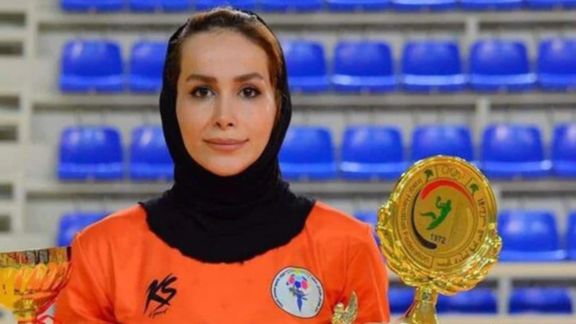
A member of the Iranian women’s handball team has confirmed that after a tournament in Spain she broke away from the team and will not return to the country.

A member of the Iranian women’s handball team has confirmed that after a tournament in Spain she broke away from the team and will not return to the country.
Shaqayeq Bapiri told Voice of America in an interview on Thursday that she decided to stay in the West because of forced hijab rules in Iran and other restrictions. She disappeared from the sports camp a few days ago.
She also disclosed that each member of her team was forced to leave a 15 billion rial guarantee-of-return with Iranian authorities before travelling to Spain for the games. The money, similar to a bond, is more than $50,000 in current exchange rates, but a huge sum for ordinary Iranians. This means Bapiri forfeited the money to be able to seek asylum abroad.
She said in the interview, “We are really restricted. If the [handball] federation had not secured the 15 billion rial guarantee [from players], no one would have returned [to Iran].
Several Iranian athletes in the past two years have defected and sought asylum in other countries. Some took part in this year’s Olympics in Tokyo as non-state athletes.
In addition to dress code restrictions, another issue forcing Iranian sports people to defect is Tehran’s policy of not allowing them to compete against Israelis.
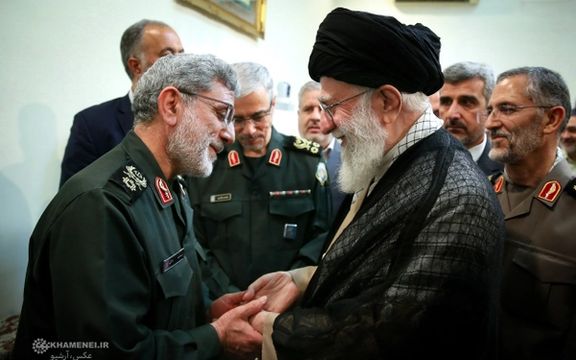
The US State Department says Iran continues to harbor al Qaeda leaders and sponsor terrorism acts, in its 2020 Country Reports on Terrorism published Thursday.
“There has been facilitation of them that allows them to remain active as leaders within the al-Qaida global enterprise,” the acting Coordinator for Counterterrorism John T. Godfrey said Thursday at a briefing introducing the 2020 report. “No secret, I think, that Iran is a longstanding state sponsor of terrorism, and I think the fact that they have enabled that leadership cadre to safely reside in Iran is a reflection of their use of terrorism as an adjunct of their foreign policy goals.”
Godfrey also said that Iran continued to support terror acts in the region “and further afield in 2020”, supporting proxies in Iraq, Lebanon, Syria, Yemen and Bahrain, including Hezbollah and Hamas.
The United States also continued high-level diplomatic contacts to counter Hezbollah’s presence in Central and South America and in Europe, resulting in nine countries taking “significant steps” in 2020 “to designate, ban, or otherwise restrict” Hezbollah.
In response to a question as to how the Biden Administration is cooperating with Saudi Arabia to counter Iranian proxy forces Godfrey said, “I think Saudi Arabia has faced a particular threat in recent years from the Houthis in Yemen, and obviously that’s a group that has enjoyed quite a bit of support from Iran, and we’ve been public about our concerns about that. And that’s something that we’ve continued to work with them on.”
However, the Biden Administration removed the Houthis from a terror designation list almost as soon as it took office in early February and since then has repeatedly condemned their missile and drone attacks against Saudi Arabia.
In the report itself, the State Department says, “The Houthis continue to receive material support and guidance from Iranian entities, including to enable attacks against Saudi Arabia. These attacks have utilized armed drones and ballistic missiles, which damaged airports and critical infrastructure.”
The report highlights the role of IRGC’s Qods (Quds) Force saying that Iran continued to acknowledge the active role the military-intelligence unit plays in regional conflicts from Iran and Syria to Yemen and elsewhere. It also says that Hezbollah “remained Iran’s most dangerous terrorist partner and the most capable terrorist organization in Lebanon, controlling areas across the country. Iran’s annual financial backing to Hizballah — which in recent years has been estimated to be in the hundreds of millions of dollars — accounts for most of the group’s annual budget.”
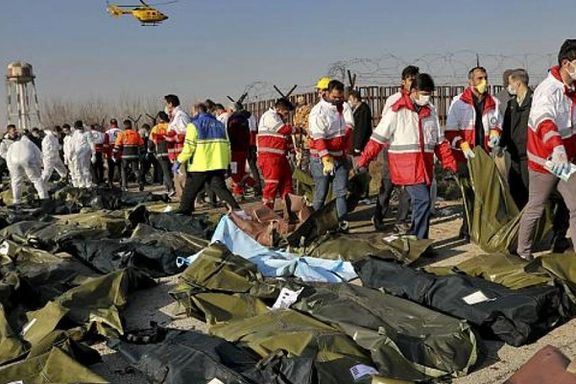
Four countries whose citizens were killed when Iran shot down a Ukrainian airliner last year have demanded that Tehran should clarify the issue of reparations.
Canada, Sweden, Ukraine and Britain on Thursday said they could consider new steps in line with international law against Iran if it failed to respond by January 5 to demands for reparations.
Most of the 176 people killed when Iran shot down a Ukrainian jet on January 8, 2020, were citizens from those four countries, which created a coordination group that seeks to hold Tehran to account.
"The Coordination Group's patience is wearing thin," it said in a statement, adding that the group had pressed Tehran to open talks on reparations and to deliver justice but said Iran had shown it was reluctant to respond in a timely manner.
It said Iran should respond by January 5 or the group would "have to seriously consider other actions to resolve this matter within the framework of international law" but gave no details.
Tehran claims Revolutionary Guards accidentally shot down the Boeing 737 jet and blamed a misaligned radar and an error by the air defense operator at a time when tensions were high between Tehran and the United States. The plane was taking off from Tehran’s Imam Khomeini international airport.
Iran, which tried to hide the nature of the plane’s crash for three days, did not allow an independent investigation of the incident and delayed the reading of the flight recorders for months.
Ukraine has repeatedly protested lac\k of cooperation by Tehran and its failure to conduct an open investigation and legal pursuit of those responsible.
Critics and victim families have highlighted that the incident took place hours after Iran fired missiles at US bases in Iraq and failed to close the civilian airspace while being on alert for possible US retaliation.
Critics also point out that it would be almost impossible to mistaken a civilian plane taking off from an airport for an enemy cruise missile, as Iranian officials have suggested. In addition, two missiles were fired at the plane, 30 seconds apart, which puts doubt into the accidental firing theory.
With reporting by Reuters

A British warplane in a US-led coalition shot down a drone this week near a base where US troops are stationed in southern Syria, officials said on Thursday.
The base, known as Tanf, is in a strategic area near Syria's border crossing with Iraq and Jordan and houses a small number of US troops.
Britain's defense ministry said a Typhoon warplane shot down a "small hostile drone" that was a threat to coalition forces. It said this was the first air-to-air engagement for a Royal Air Force Typhoon.
US Central Command spokesman, Navy Captain Bill Urban, said two drones entered the Tanf garrison "deconfliction" zone on Tuesday and one was shot down as it moved closer to the base. He said there were no casualties or damage to facilities.
It was not immediately clear who owned the drone.
Iranian-backed forces have in the past attacked US troops with drones and rockets in eastern Syria and Iraq. In October, a number of drones were used against the base, although there were no casualties.
US officials have said Iranian-backed militia could increase attacks on US troops in Iraq and Syria in coming weeks, in part to mark the anniversary of the killing of top Iranian general Qasem Soleimani and Iraqi militia commander Abu Mahdi al-Muhandis killed by a US drone strike in Iraq on Jan. 2, 2020.
Report by Reuters
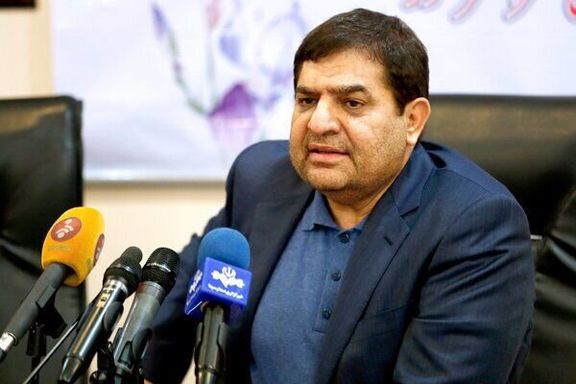
Iran’s vice president Mohammad Mokhber has revealed that COVID vaccine production equipment was brought into the country using an ambassador’s diplomatic pouch.
President Ebrahim Raisi’s first vice president speaking at a meeting of Iranian envoys in neighboring countries said, “In a money transfer attempt to a foreign country a trace of an operation related to vaccines was discovered and we imported the equipment as the household goods of our ambassador.”
He quickly remarked that he should not have said that, but added that “We have solutions to any problems in the country.”
Before becoming vice president Mokhber headed an effort to develop and produce a homegrown vaccine, after Supreme Leader Ali Khamenei banned the purchase of American and British vaccines in January.
Mokhber who repeatedly promised to produce 50 million doses by August has reportedly delivered only nine million doses to the health ministry. Reports and criticism in local media have spoken of hundreds of million of dollars of state funds given to local vaccine producers who failed to come up with enough doses to inoculate people until August.
A wave of new infections that hit Iran in June killed around 40,000 people until foreign vaccines were finally imported in sufficient quantities in August and September.
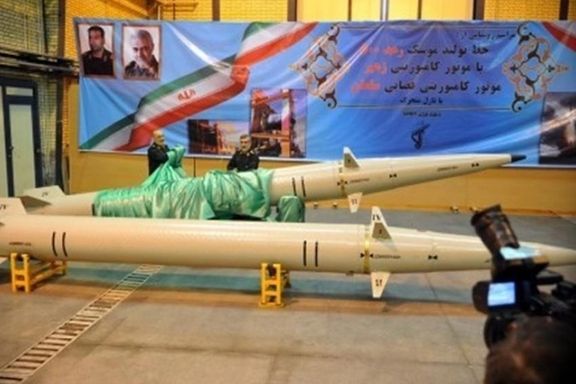
The US Department of Commerce Thursday designated several Chinese and other companies that have aided Iran’s conventional weapons’ development to Entity List for acting against US interests.
A statement issued by the Department said the End-User Review Committee (ERC), composed of representatives of the Departments of Commerce (Chair), State, Defense, Energy and, the Treasury makes determination if a company has inappropriately diverted US technology for purposes that are harmful to US interests.
A senior administration official had said earlier in the day the Commerce Department and Treasury Departments would announce a series of actions on Thursday targeting Chinese companies that Washington says use biotechnology and surveillance to abuse human rights.
Aside from China, the Commerce Department also took action against entities from Georgia, Malaysia, and Turkey for allegedly "diverting or attempting to divert U.S. items to Iran’s military programs."
A document released said several companies are being designated “for actions contrary to the national security or foreign policy interests of the United States. Specifically, these companies have supplied or attempted to supply U.S.-origin items that could provide material support to Iran’s advanced conventional weapons and missile programs...”